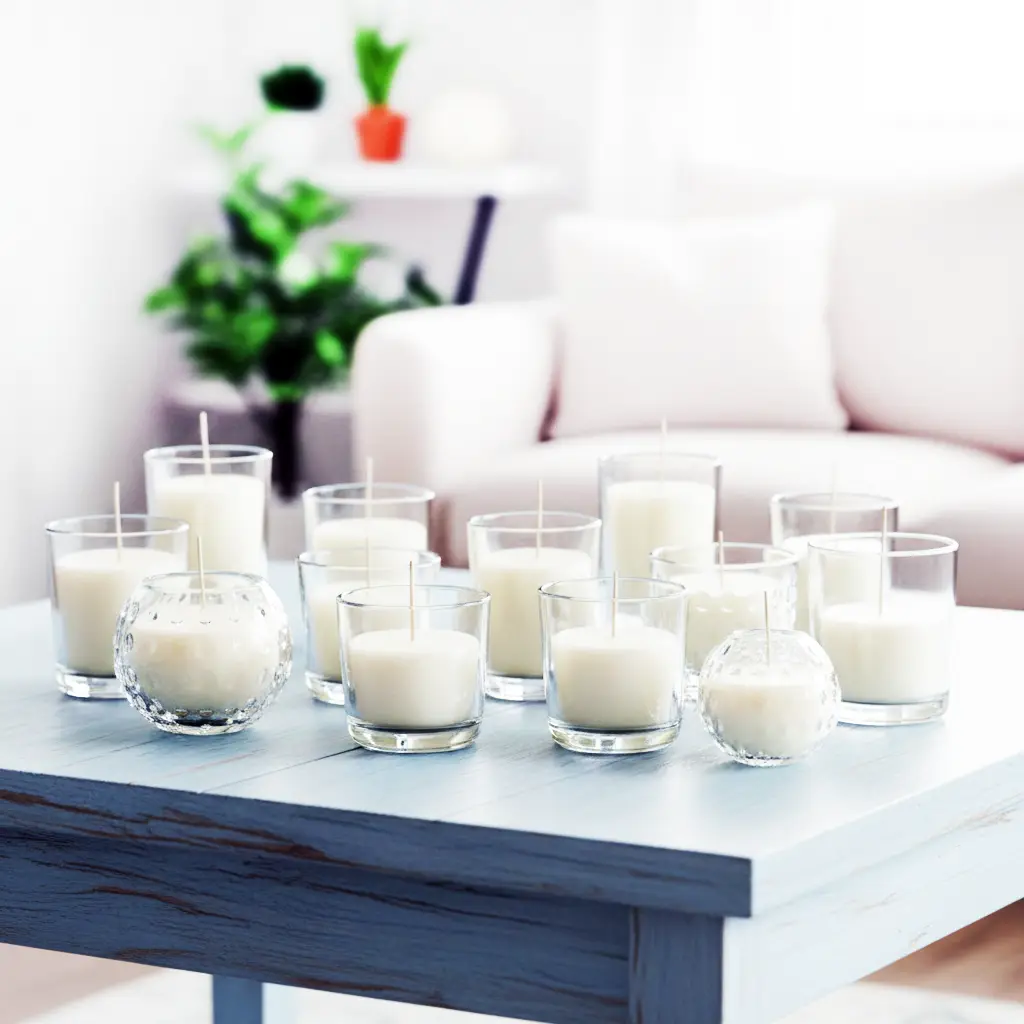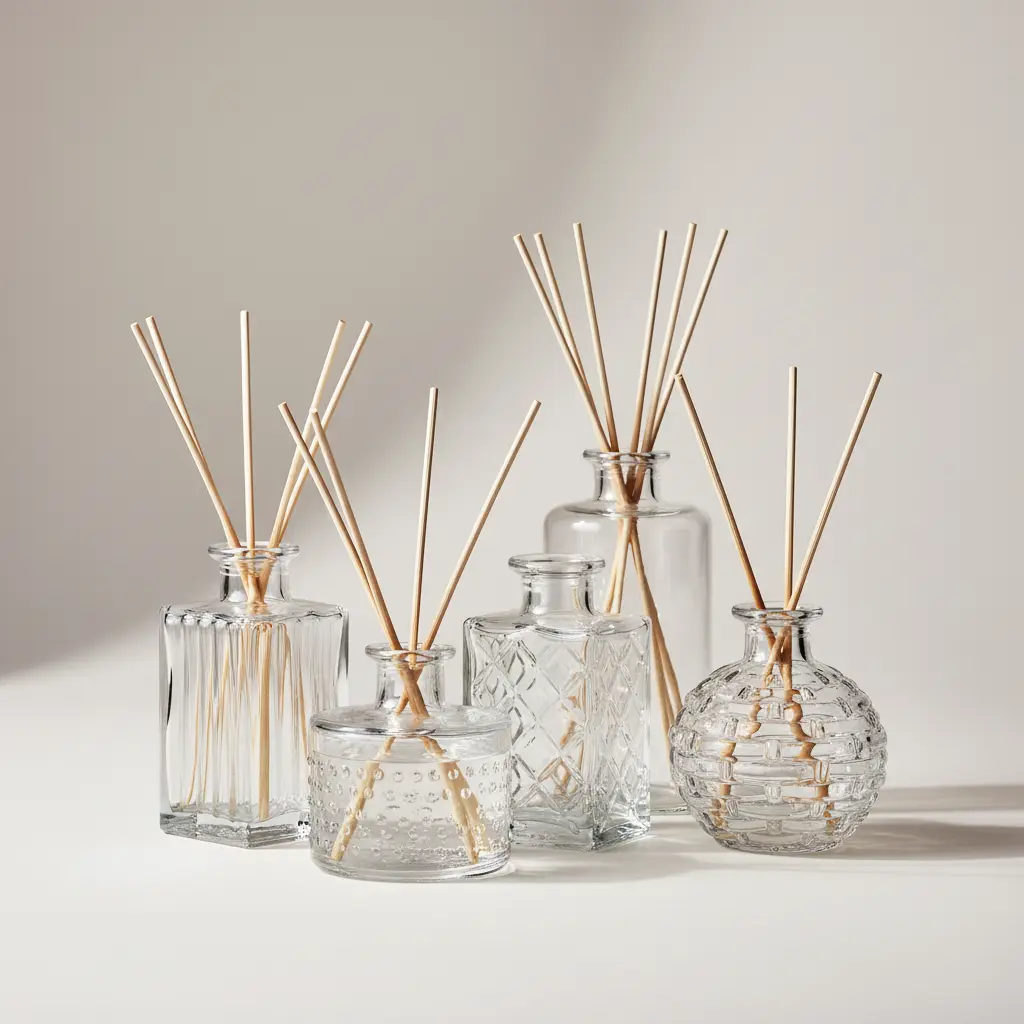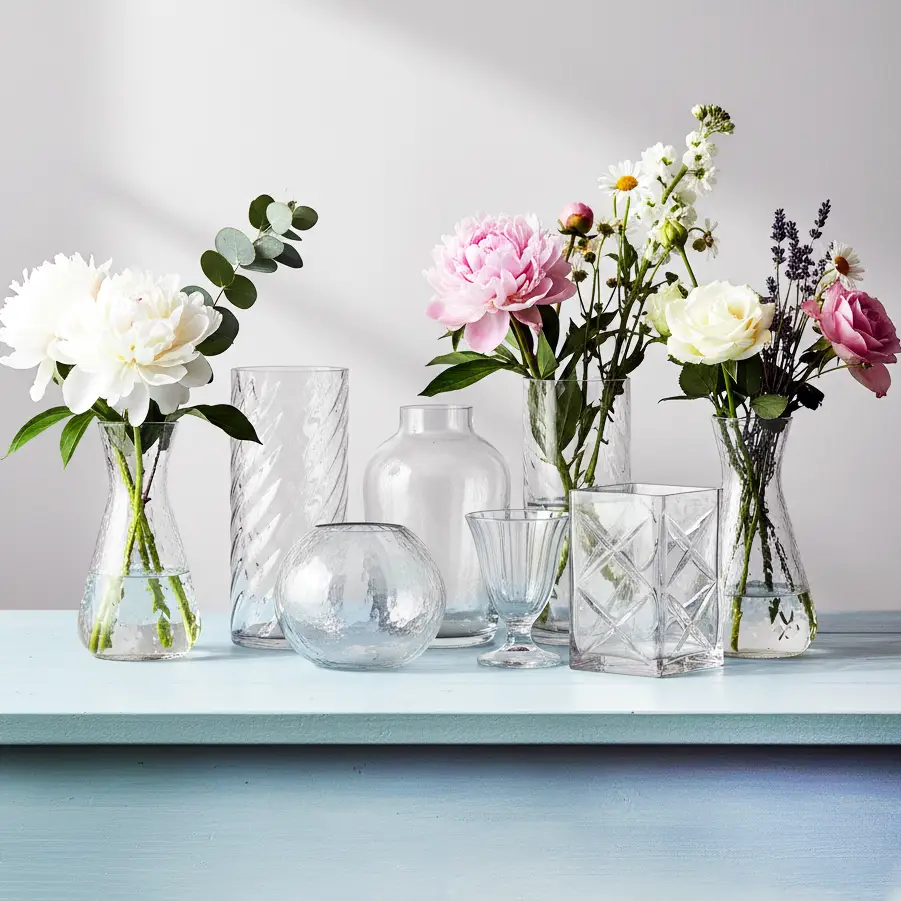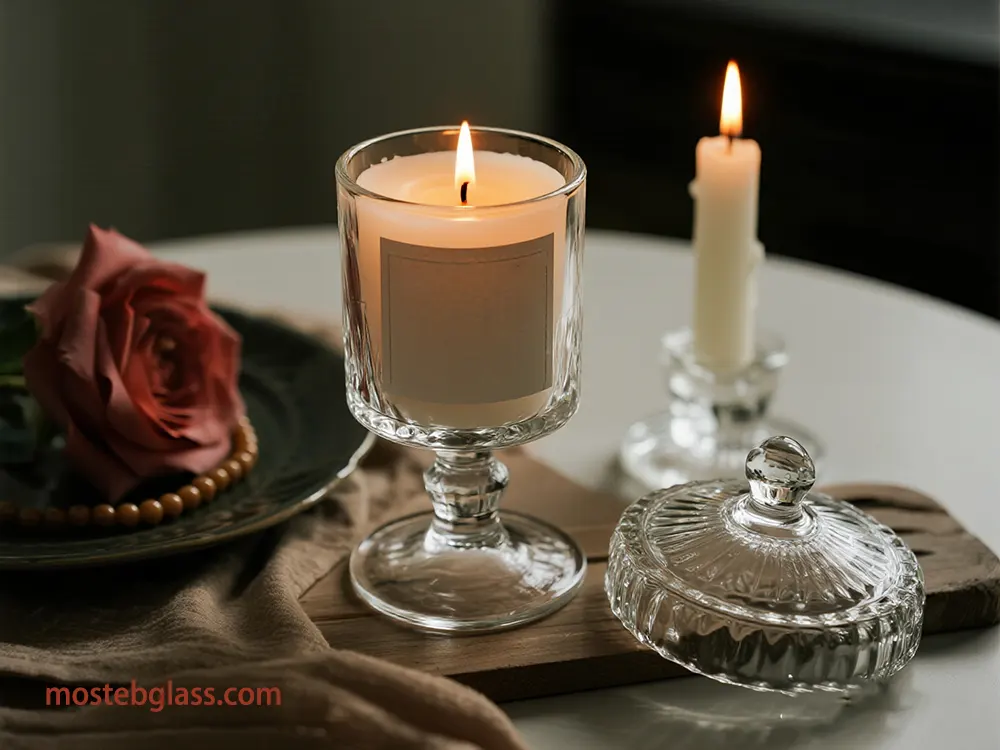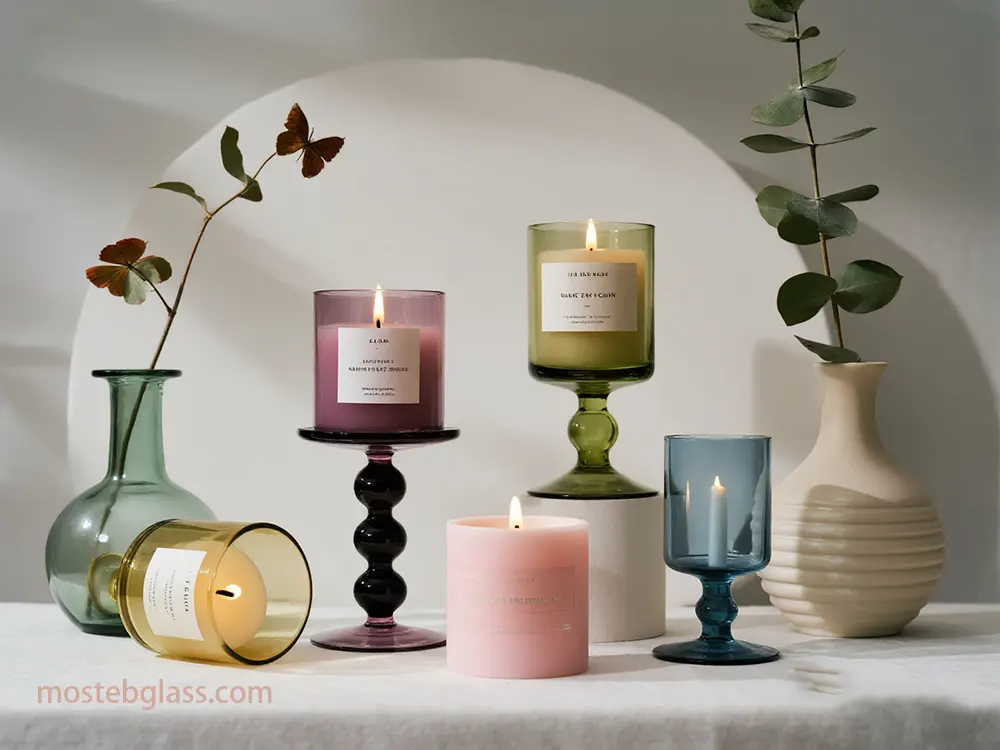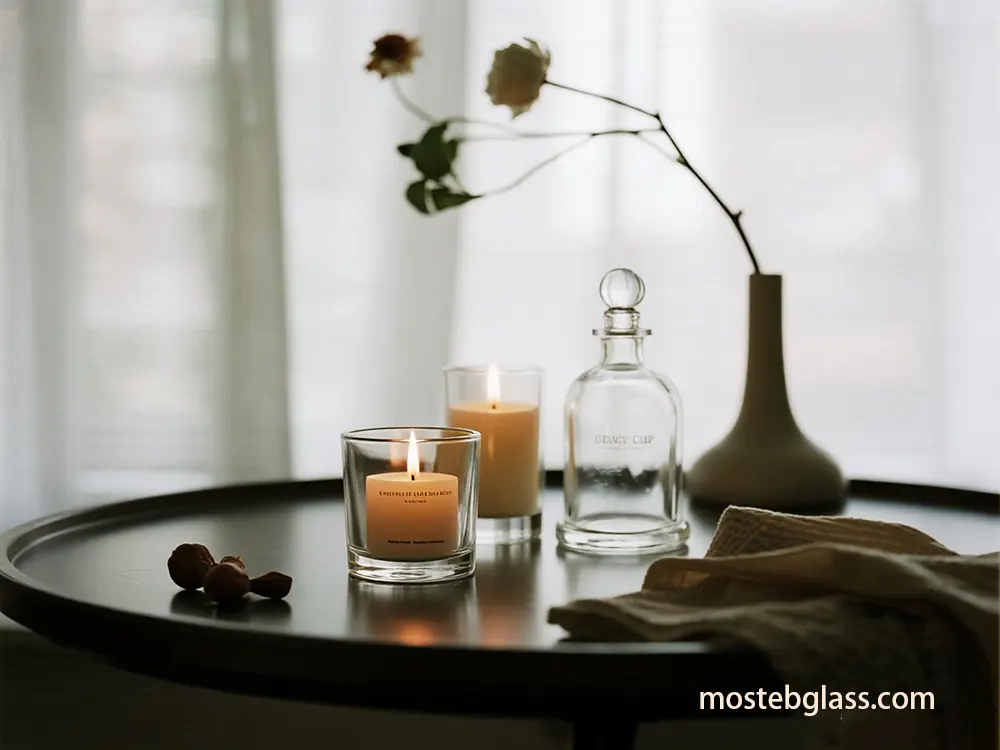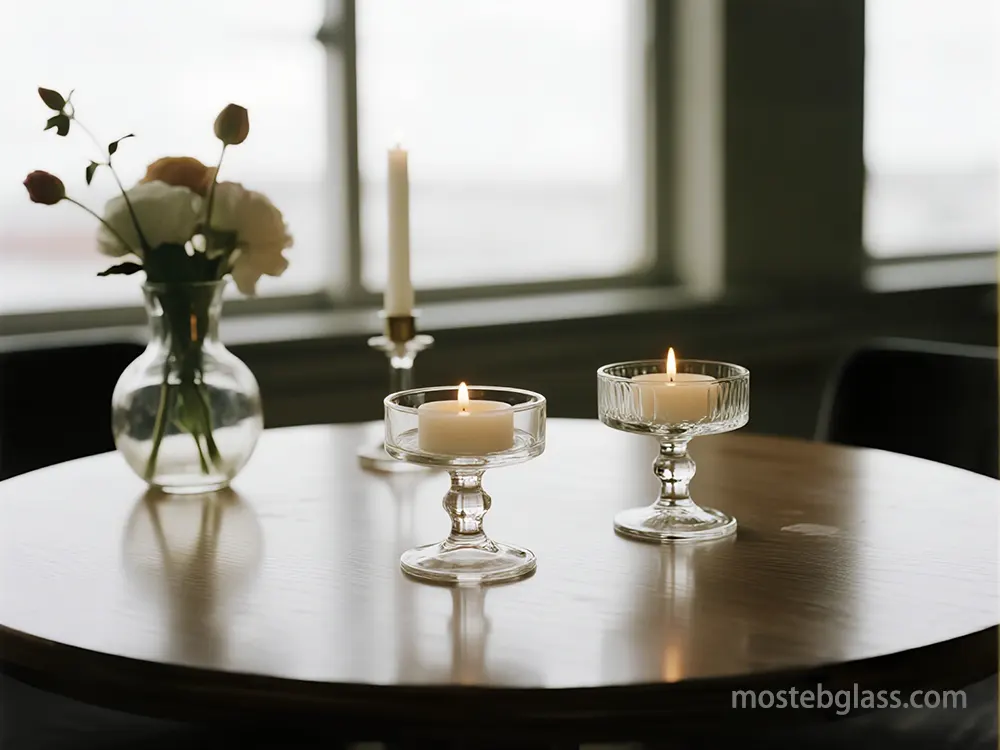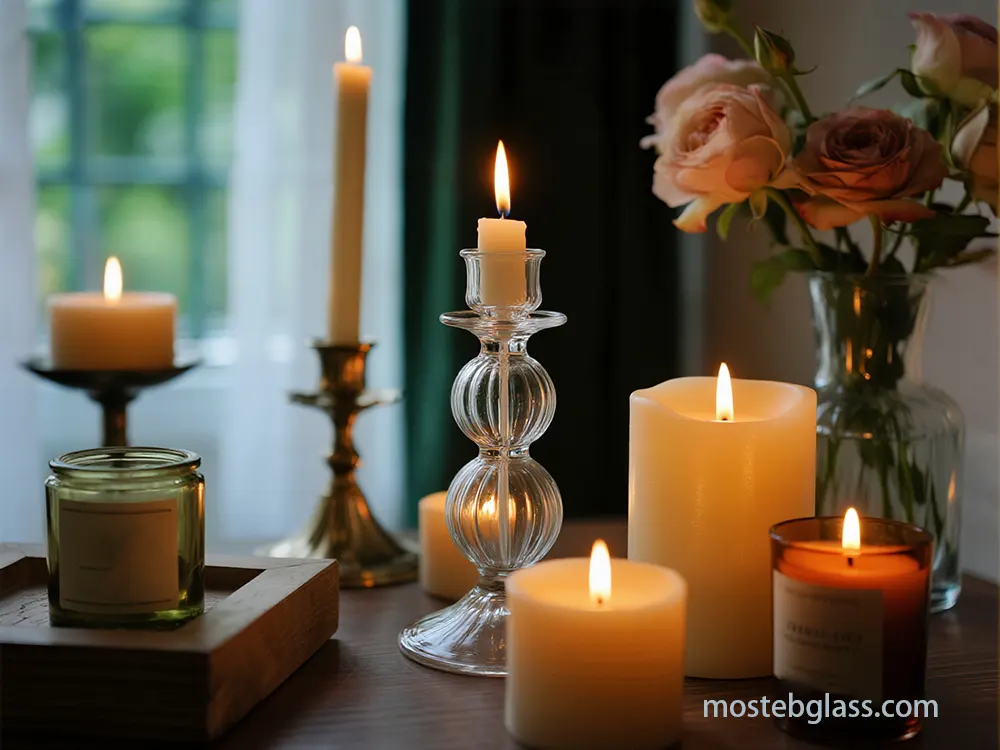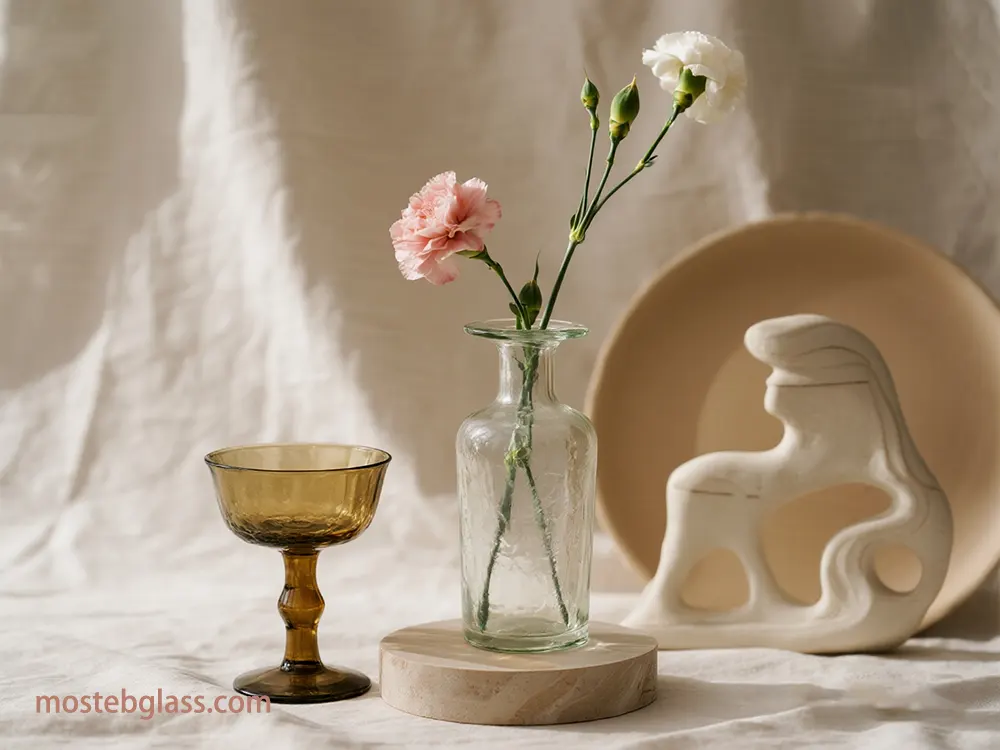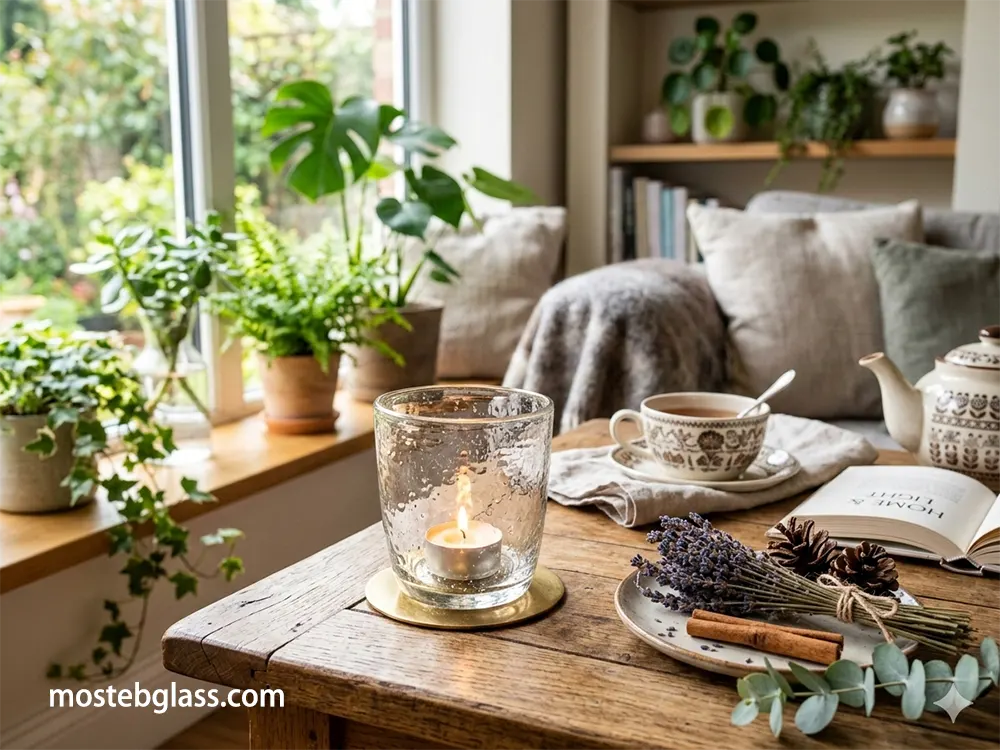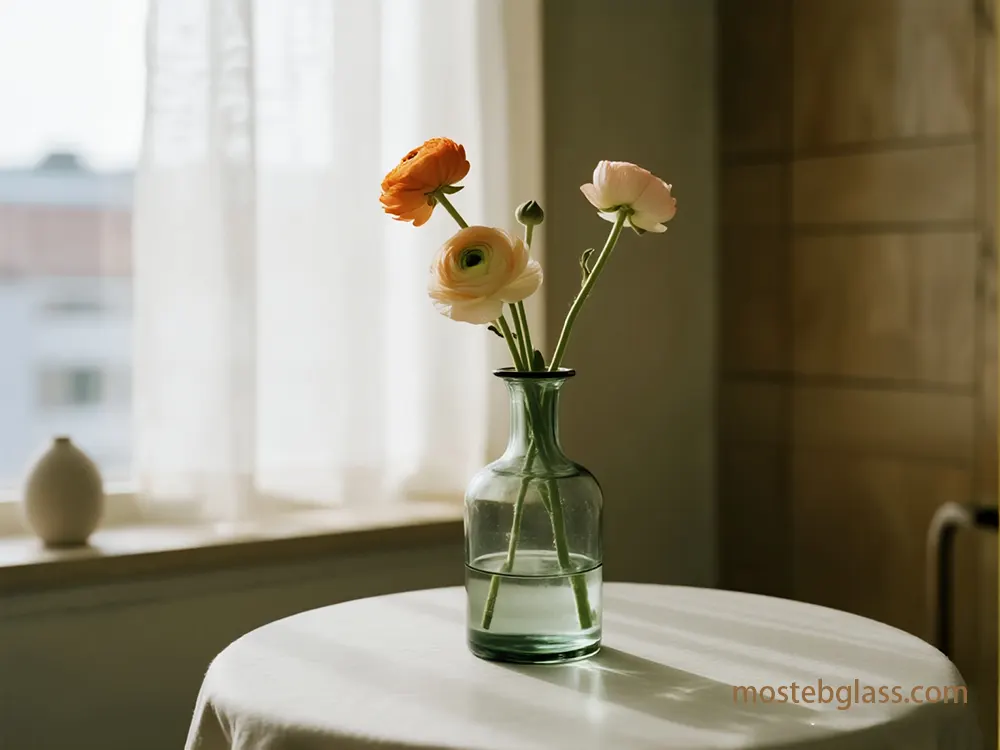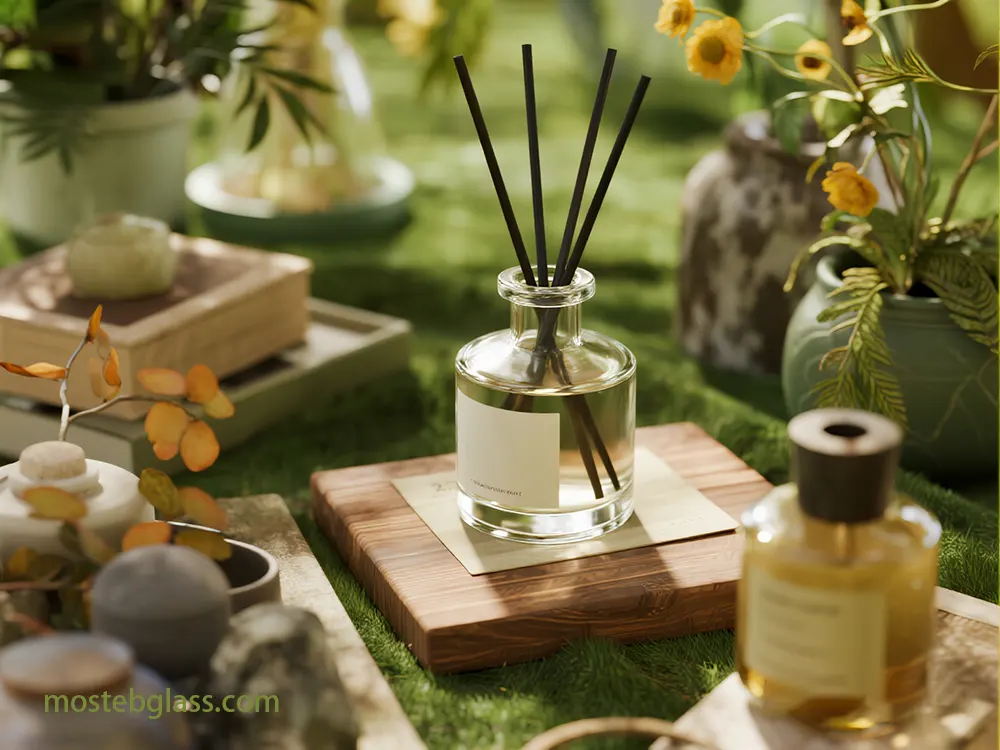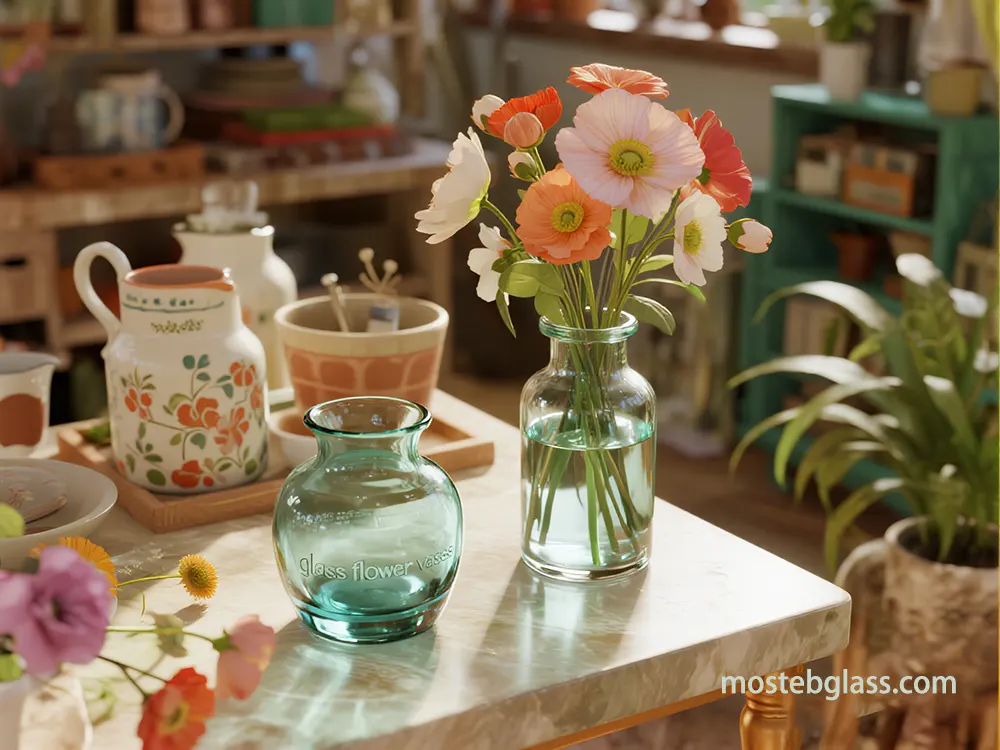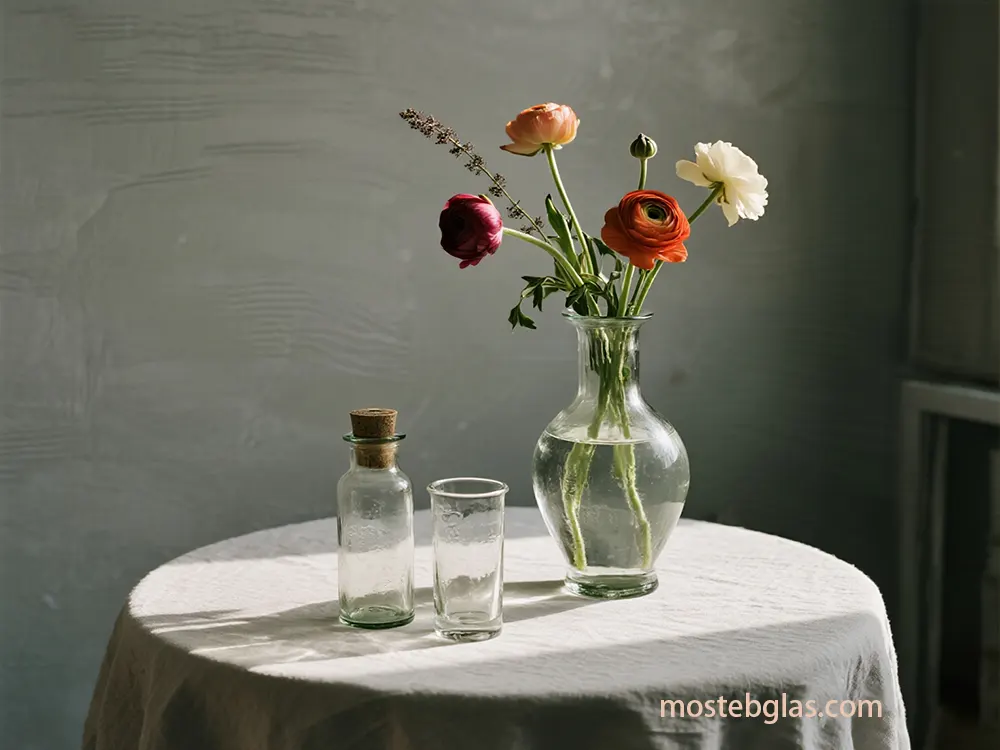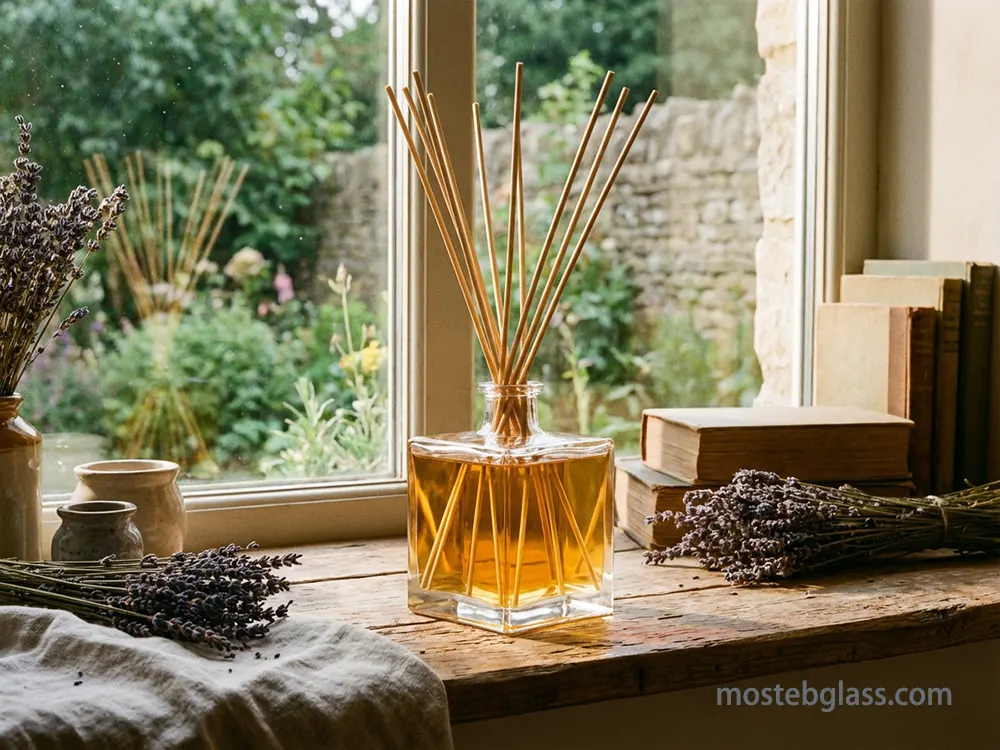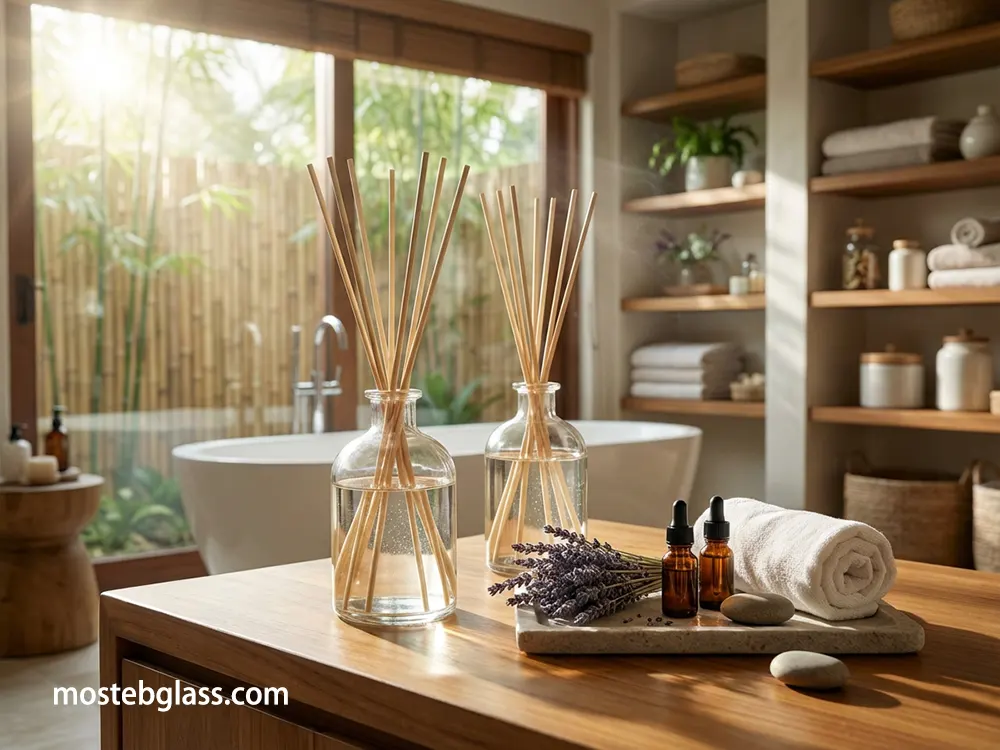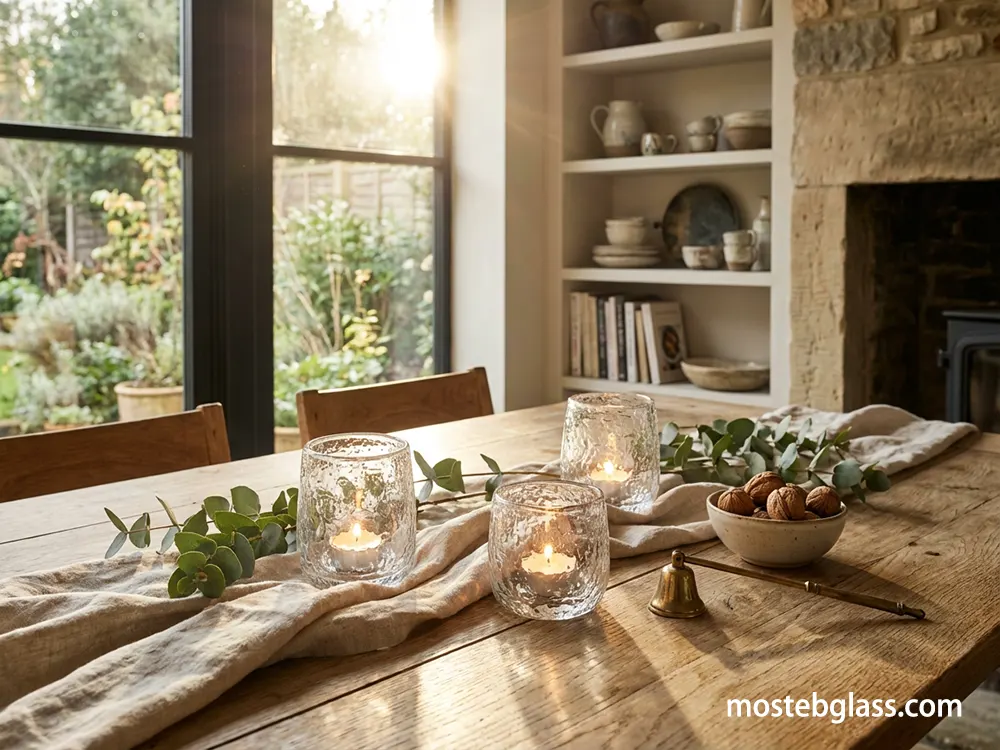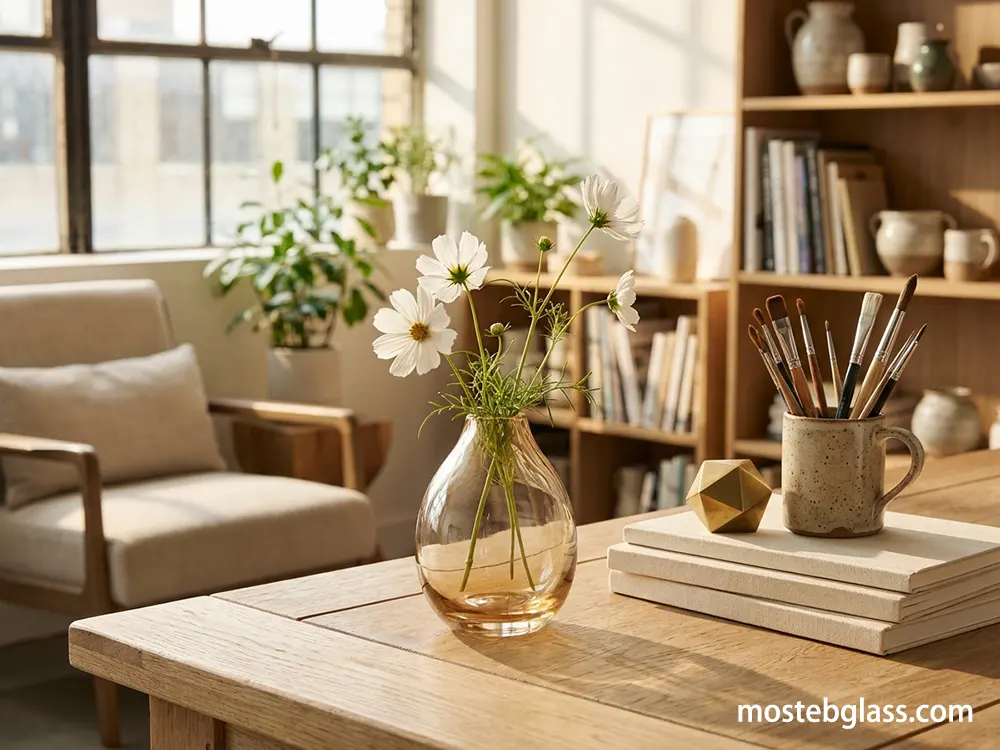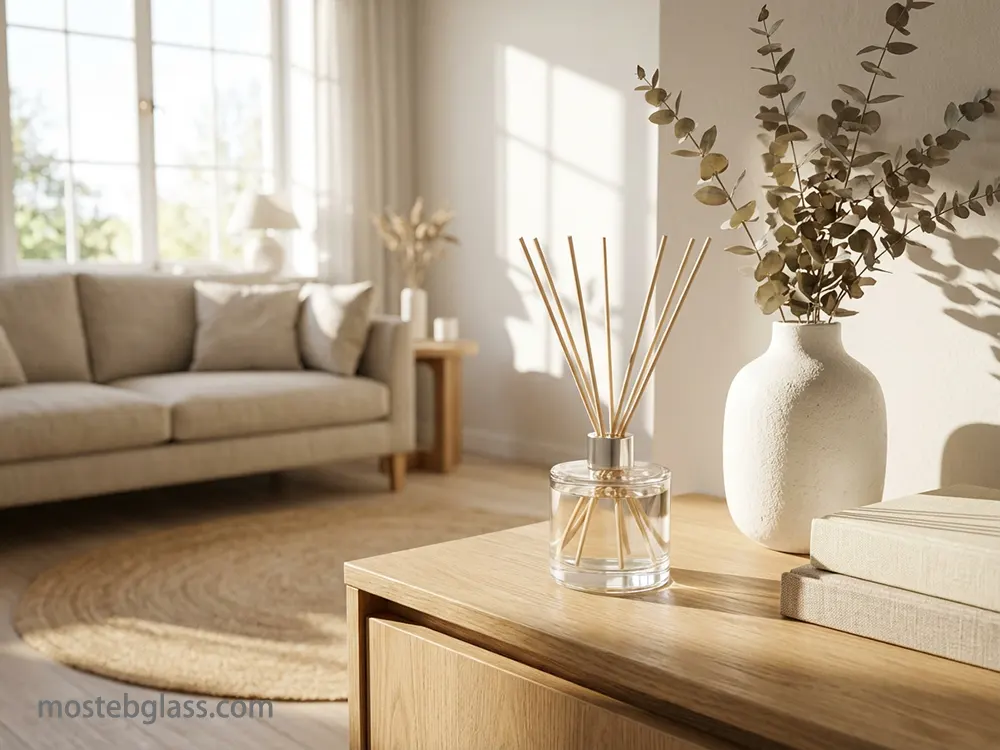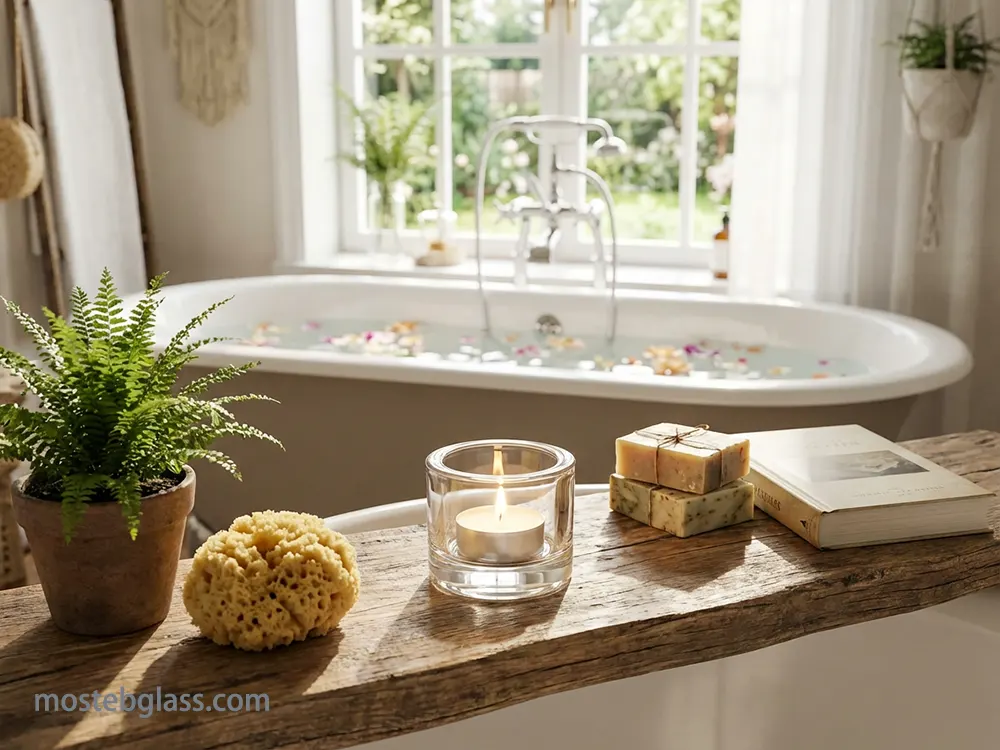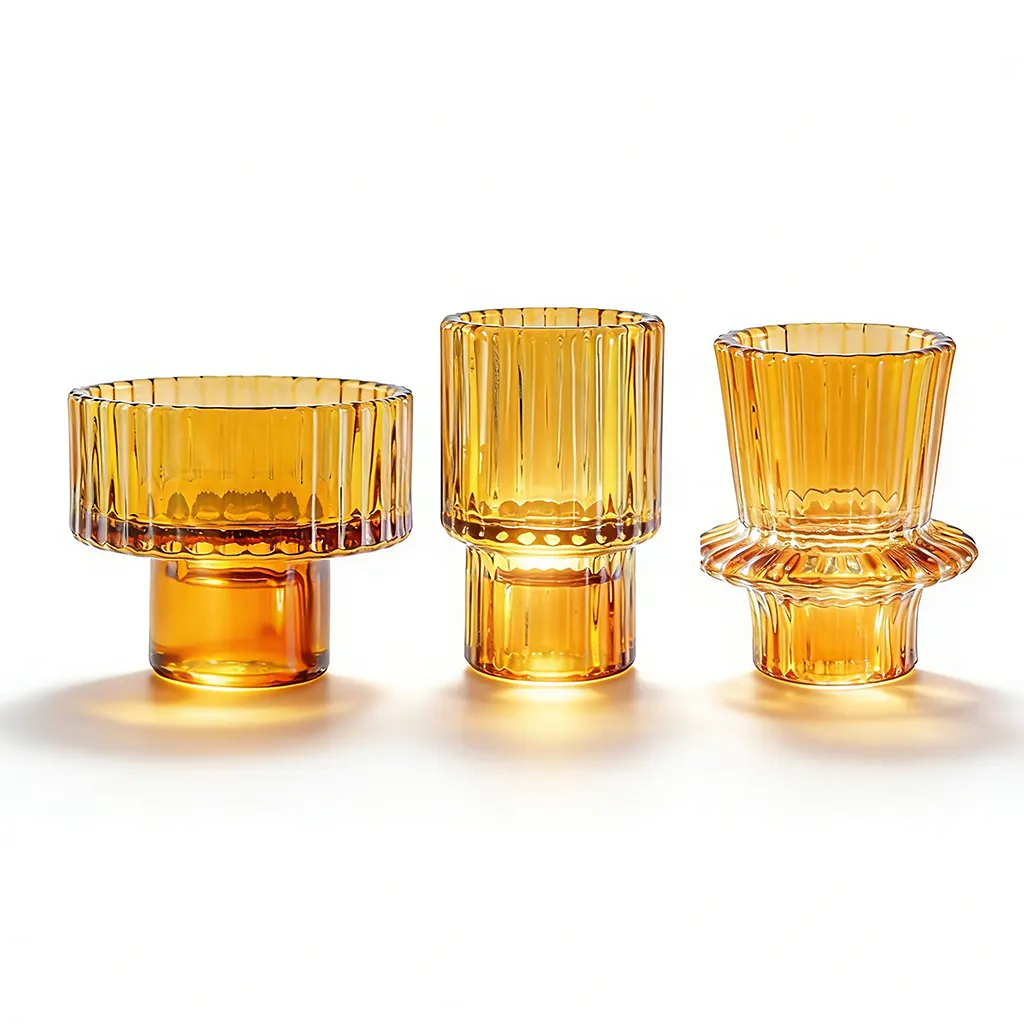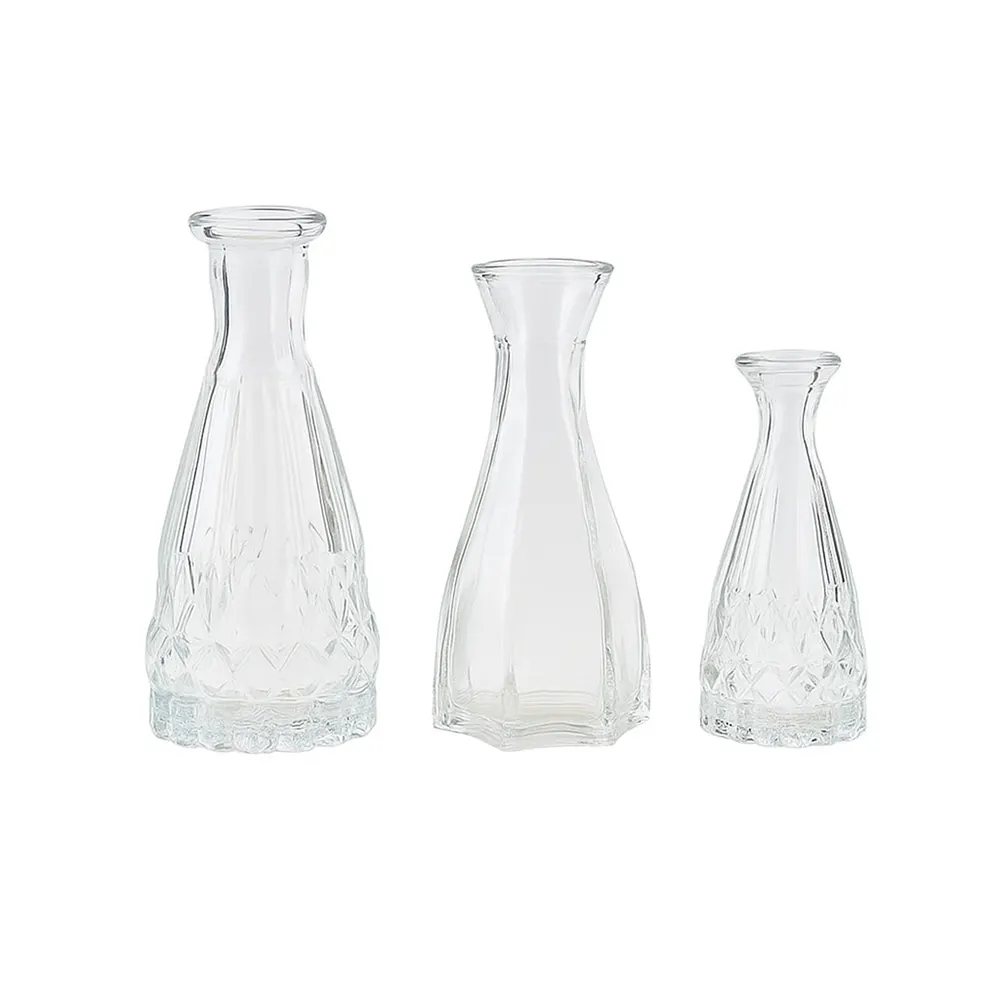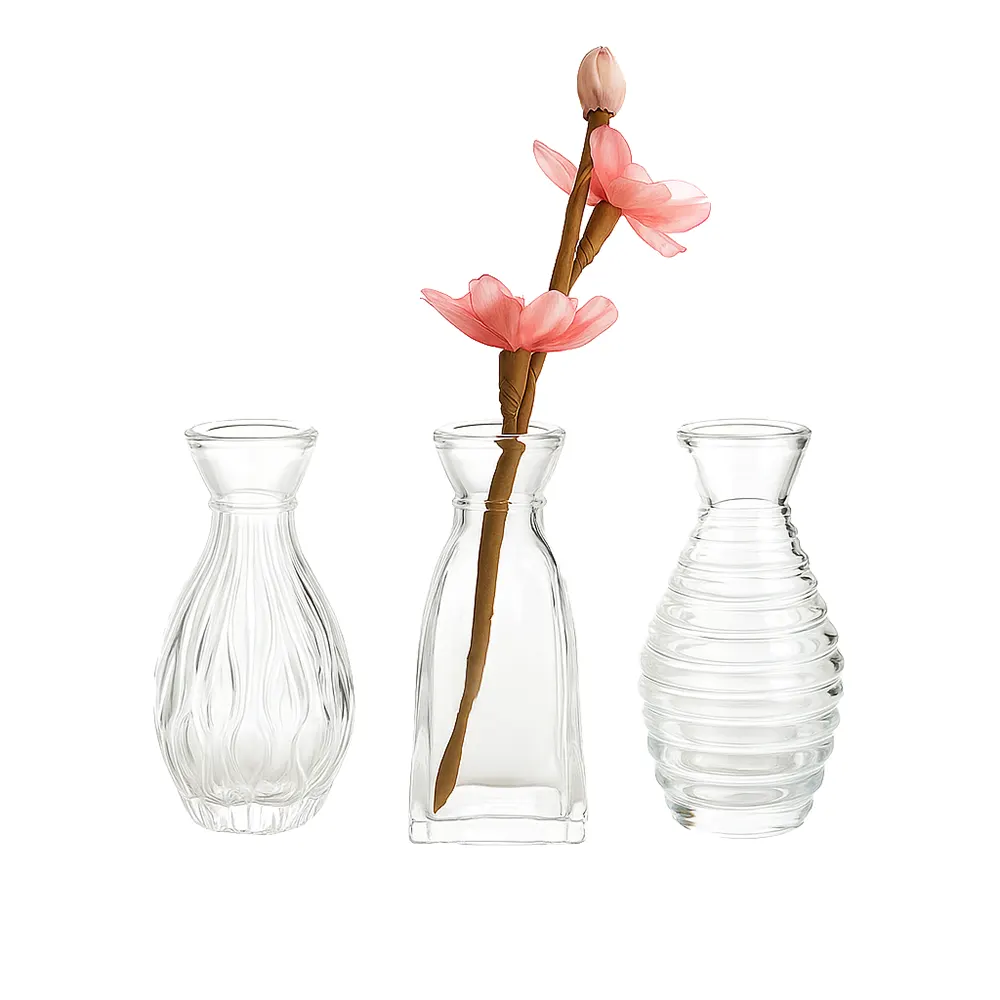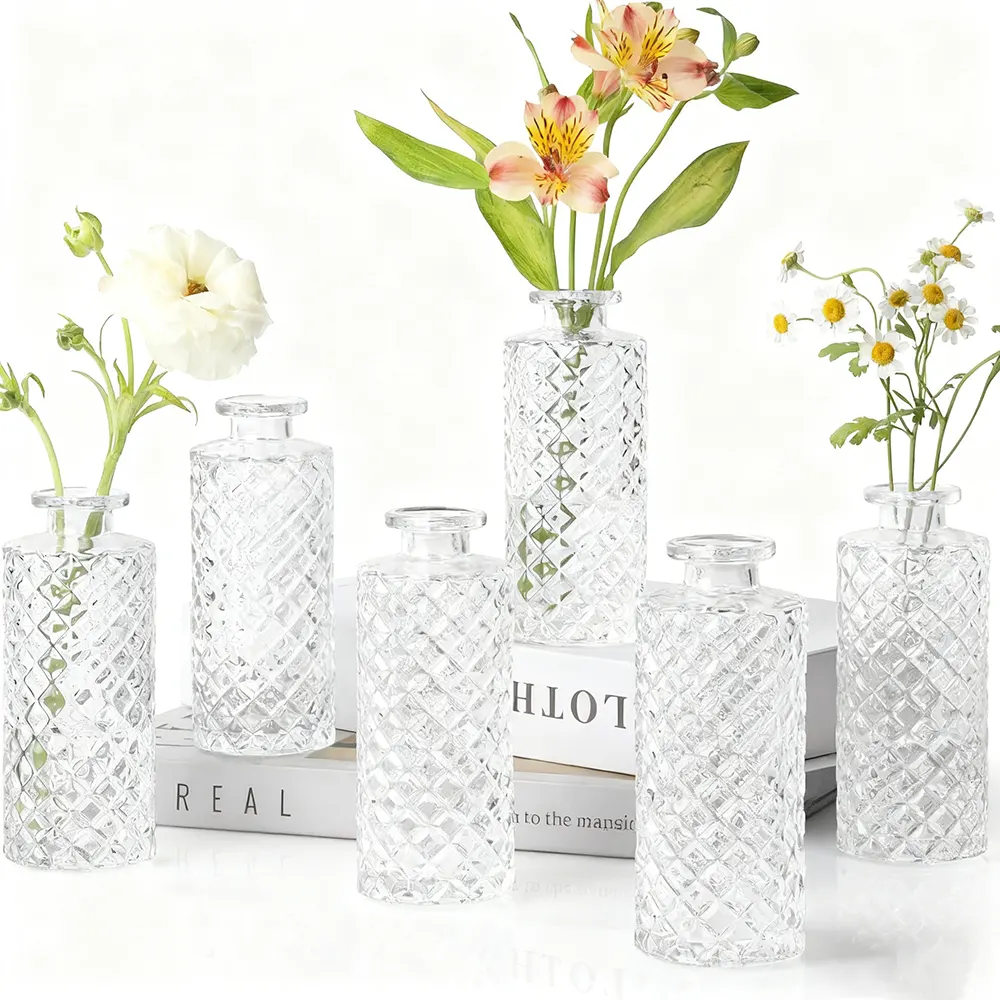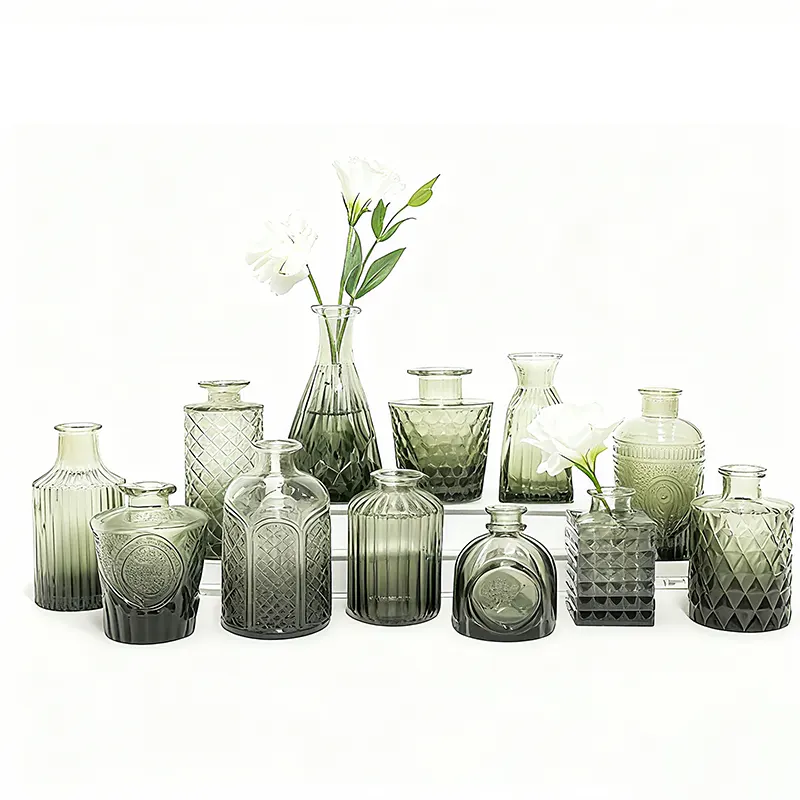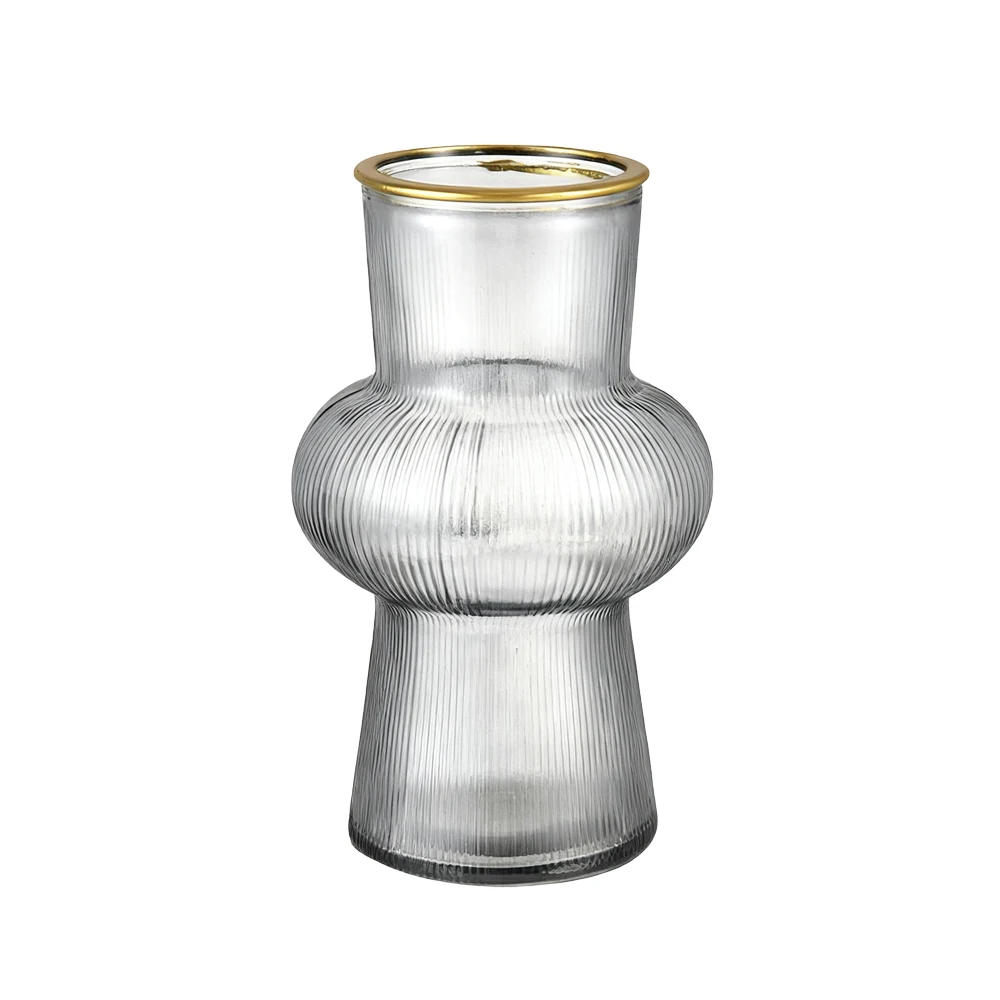1. Executive Summary
This report analyzes the strategic effects of retail performance and glass vases for decoration on the brand image. It covers their typology, aesthetics and integration in diverse retail settings, from luxury boutique to home goods stores. The thoughtful selection and performance of glass vases is greatly enhanced by visual merchandising, product story, and consumer perceptions of luxury, stability and innovation. Major metrics and evaluation structures, including AI-operated analytics and i-tracking, are mentioned to measure their effects. Case studies describe the best practices, while emerging trends such as sustainable manufacturing and digital integration (AR, NFT) are detected. Actionable recommendations are provided for retailers, which include those using the mostb products, which adapt to the use of glass vase for display and brand image purposes.
The competitive retail landscape demands innovative visual merchandising and brand discrimination.
Decorative elements are important in shaping customer experience and perception. This research focuses on the effects of glass vases for decoration in retail. The primary environment includes luxury boutiques, department stores, home goods stores and floorists, where aesthetics and brand Katha are paramount.
- Scope focus defines types:
- Hand blown glass vases: artisans valuable for quality and unique variations.
- Crystal vases: Known for complex designs and superb appeal.
- Recycled Glass Vases: Emphasizing stability and unique irregularities.
- Minimum design: characterized by clean lines and geometric forms.
The purpose of this report is to explain how these vases, their qualities and strategic placements, how the visual identity of a retailer, product story stories and brand image.
2. Typology and beauty characteristics of glass vases for decoration
Decorative glass vases are sculpture elements that contribute significantly to the beauty and perceived value of a retail space. Their diverse typology spreads the material, manufacturing and design philosophy.
2.1. Classification and beauty properties
Hand-Blow Glass Vases: In luxury retail, extremely prized, hand-blowing vases artisans provide specificity. The underlying variations separate each piece, expressing craftsmanship, uniqueness and the spirit of authenticity and luxury.
- Crystal vases: crystal vases, a great choice, feature complex cut design. Their talent and refractory properties increase light, increasing the perceived value. They are more expensive due to physical quality and craftsmanship.
- Recycled Glass Vases: Recyclane glass vases are an environmentally friendly choice, reduces the use of virgin materials and characteristic of unique irregularities. They align with “Wabi-Sibi” philosophy, who appeal to conscious consumers of the environment.
- Minimum Design: Minimum design with clean lines and geometric forms create harmony. Their sensible elegance allows them to act as both flower holders and standalone pieces.
- Themed vase sets: Themed vase sets, such as “twig 3 vessels,” include natural elements for artful displays, often showing small floral buds.
- Coloring glass bottles: Long, thin glass bottles add modern colors and textures to the long, thin glass bottles in the frosted finish.
- Art deco revival: Tierdrop -shaped vases Evoke Art Deco Luxury and Vintage Sophistication.
- Biofilic design: biofilic design, mimicking natural forms, connecting people with nature, creating a calm retail environment.
- Sculpture and asymmetrical designs: Sculpture and asymmetrical design serve as pieces of eyes catching art, increasing the appeal even when empty.
2.2. Material properties and manufacturing technology
Physical properties and manufacturing techniques directly affect beauty appeal, durability and perceived value:
- Glass type:
- Traditional Glass: Mainly with metal oxide for silica sand, soda ash, and lime, color.
- Reinforced Glass Composite: Offer high-ruptured resistance and clarity, increasing durability in high-traffic retail.
- Construction technology:
- Hand Blowing: Artisans shape melted glass using a blopy, allowing freedom in size and color, which makes each piece unique and emphasizes the quality of the artisan.
- Molding, pressure and casting: pouring or pressing melted glass in molds for desired shapes, often for mass production or complex designs.
- Annealing: Important slow cooling relieves internal stresses, prevents cracking and ensures durability.
- Material combination and surface treatment:Designers mix the opposite texture (stone, brush metal, ceramic, glass) for touchable interest. Metal accents (aluminum, brass, copper) add modern aesthetics.
- Texture glass: creates dynamic visual effects through light, adds depth and conspiracy.
- Matt Finys: Matte ceramic finishes offer understated elegance, especially for minimalist interiors.
- Rainbow and metal finish: Finishes (copper, gold, chrome) make bold, futuristic accents.
- Cutting and sandblasting: subtle, refined surface decoration, adding purification.
2.3. Functional and ergonomic idea
Beyond aesthetics, functional design is important for retail use. The vases must have structurally sound to support water and flowers, often to distribute weight with broad bases and thin necks and prevent tipping.
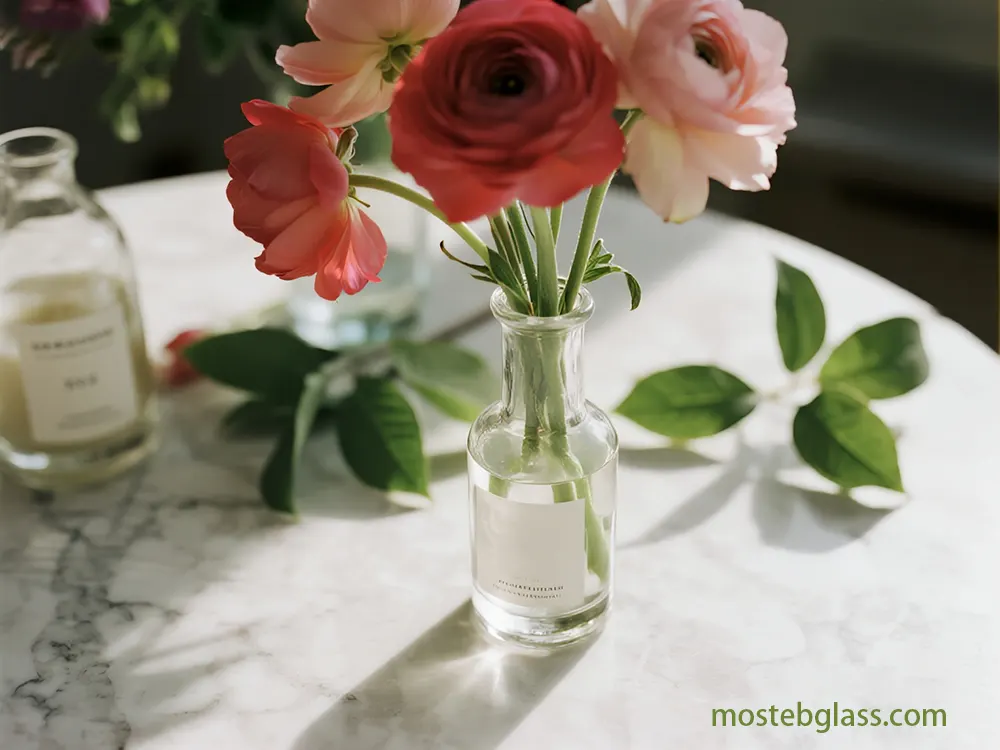
3. Strategic integration of glass vases in retail
Strategic integration of decorative glass vases visual merchandising, product story tell and store atmosphere significantly affects the atmosphere. They serve as standalone elements or ancestors for products such as flowers or candles.
3.1. Visual Merchandising and Product Storytelling
Visual merchandising acts as a “silent seller”, focusing and encouraging purchases. Glass vases are integral:
- Focal points and hierarchy: Vases form focal points, drawing eyes into specific products or areas. In luxury, they highlight the hero products.
- Color coding and harmony: The vase coordinates with the performance palette for color harmony. The neutral suit to look modern/traditional; Lively colors increase artistic subjects. A similar palette (3-4 shades) brands coordination.
- Products groups and three rules: groups in the 3s (vases, candles, frames) create balance and appeal. The “pyramid theory” and “triangular rules” arrange products to attract the eyes at a focal point.
- Story through props and themes: glass vases, especially with flowers, add depth, create mood, enhance emotions, and enhance aesthetics. The central theme (seasonal, brand heritage) allows vases to contribute to a harmonious story.
- Maximum product exposure: The display should maximize the product exposure without congestion.
3.2. Store atmosphere and experienced area
Glass vases transforms the store atmosphere from transaction to experience:
- Light and atmosphere: deliberately highlights light products and creates an atmosphere. Light lights add heat; Spotlights make drama, enhancing the magnificent feel of glass. Artificial light highlights specific products.
- Sensory engagement: Luxury shopkeepers attach all senses. Glass vases, with strategic light and fresh flowers, create a multi-sensory experience, increasing the journey of shopping.
- Experienced retail: brick-and-mortar stores focus on memorable experiences. Punt glass vases contribute to interactive, immersive environment, promoting deep brand connections.
- Window display: Window display is the critical “silent markets”, making first impression. Glass vases can be central, making unique, stylish presentations that depict the brand theme and drag the leg traffic.
- Retail Theater: Retail Theater attachs customers through dynamic display. This concept can expand to the vase presentation, perhaps through interactive elements or unique arrangements.
3.3. Functional Rolls: Standalone vs. anhansar
Glass vases play different functional roles:
- Standalone decorative elements: Many glass vases (hand blowing, sculpture) stand alone as pieces of art. Even empty, they express sophistication and design sensitivity.
- Enhancers for other products: more generally, vases enhance other products, serve as ships for flowers, greenery, or candles.
3.4. Integration with digital experiences (speculative)
However mainly physical, glass vases are integrated into digital retail through omnichannel strategies:
- QR Code: Window display with glass vases can be used to direct customers for online stores or AR experiences, allowing home views.
- Interactive digital signage: Smart glass converts windows into a dynamic projection screen for promotion. This physical vase display or project can create an attractive background for virtual AR-Interactive Vases.
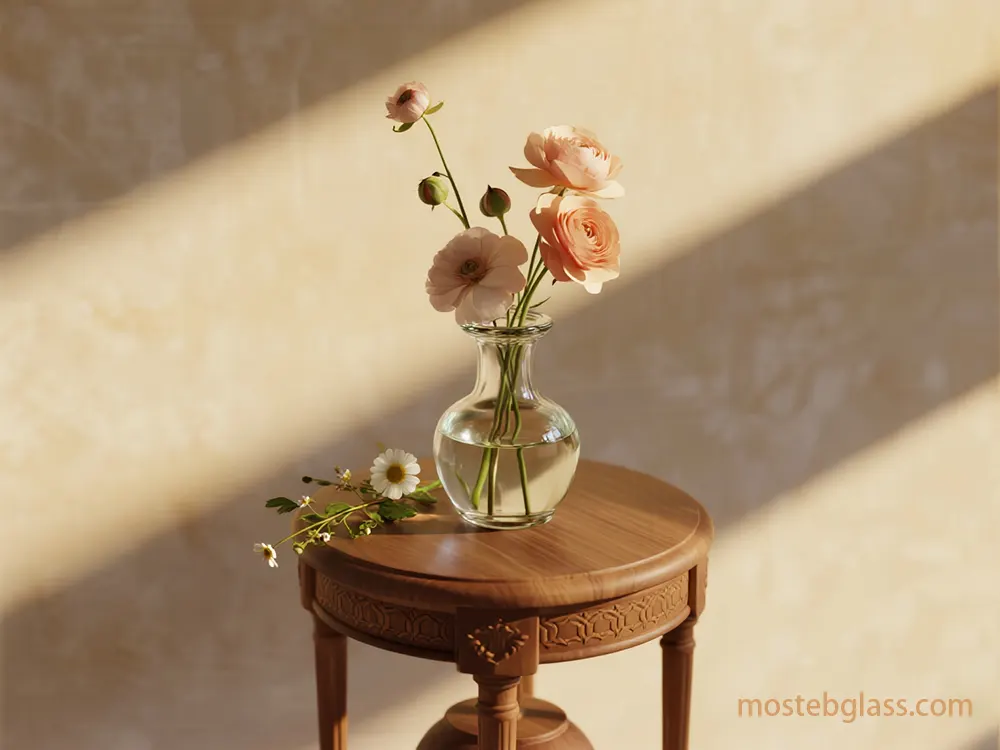
4. Influence of Glass Vases on Brand Image Perception
The selection of decorative glass vases, quality, and performance directly affects the brand image dimensions: luxury, stability, innovation, access and emotional resonance. In luxury retail, these elements are carefully cuisted to tell compelling stories and create deep emotional relations.
4.1. Luxury perception and uniqueness
- Visual merchandising as a brand ambassador: Effective visual merchandising enhances the notion of the brand by reflecting heritage, quality, and uniqueness.
- Craftsmanship and Quality: Handmade Glass Vases demonstrate complex details and better craftsmanship, align with luxury values of sophistication and durability. The reflective properties of glass naturally increase luxury and sophistication.
- Specification and scatter: Luxury thrives on specificity. Coincidence, limited-sanskriting, or custom glass vases cause scattering, increasing the desirability and perceived value.
- Precision in the composition: Luxury displays are cautiously cuisted, such as fine art, focused with hero products. Glass vases highlight these objects, strengthening importance and uniqueness.
- Most examples: For example, the mostb, high-ended, hand-developed crystal vases translates to unique design and craftsmanship translates to luxury and uniqueness, justifying premium pricing. The Mosteb Wasse display tells the story of its construction, artisan skills and artistic value.
4.2. Sustainability and Innovation
- Environment-conscious branding: Consumer demand manufacturers for environmentally friendly products motivate manufacturers to use recycled glass and durable practices. Brands using recycled glass vases transmit stability, resonating with consumers consumers.
- Transparency and authenticity: Transparency in the origin and manufacturing of materials is important for product stability. Brands sharing recycled glass use or creation of trust and authenticity by permanent methods, key to corporate heritage brand authenticity.
- Innovation in the material: Using bio-based materials (PLA for 3D-miscreited vases) or ocean plastic composes displays innovation and environmental responsibility, holding a brand in position as a permanent design leader.
4.3. Accession and emotional resonance
- Emotional relationship: Luxury visual merchandising mixes branding for creativity, psychology, and immersive shopping. Glasses demonstrate that enthusiasm, indifference, or sophistication makes deep emotional relations with the brand to eliminate the sophistication.
- Color Psychology: Vase color options significantly affect perception. Deep blacks/golds abandoned reputation; Crunchy white/pastel refinement.
- Multi-sensitive experience: Luxury brands attach all senses to immersive experiences. The visual appeal of the glass, strategic lighting, texture, and the smell of flowers contribute to multi-sensitive engagement.
- Brand Storytelling: Visual storytelling is important for luxury brands, which connects customers by showing heritage and values. Glass vases act as integral props, expressing history, inspiration or artistic vision.
- Customer perception and brand equity: Customer perception defines brand equity.Each touchpoint, including the quality and presentation of the glass vase, shapes this perception. Different perceptions from the high quality, considering vases increase satisfaction and promotes loyalty.
Carefully considering the vase type, quality and performance, retail sellers strategically affect the notion of the brand, cultivating the image alliance with market status and target audiences.
5. Measuring effects: Matrix and Evaluation Infrastructure
A multicolored approach is required to evaluate the effects of retail performance and ornamental glass vases on the brand image, a combination of quantitative/qualitative matrix with advanced analytics. The goal is to understand sales uplift, customer perception, brand equity and engagement.
5.1.Sales display metrics
These metrics display effectiveness for revenue:
- Sales uplift: Major glass measures sales during the vase.
- Average transaction price (ATV): If analysis encourages high expenses per trip, then potentially on vases or supplementary products.
- Sales conversion rate: The glass vase tracks the percentage of customers after exposed to the display.
- Cell-Through Rate (STR): Monitoring how quickly sells a displayed products (vases, flowers, candles). A climbing str suggests effectiveness.
- Return on Investment (ROI): Display against the generated revenue compared the construction/maintenance cost (including vases).
- Per transactions units (UPT): Measure average items purchased from per transaction performance.
- The conversion rate of the impulse purchases: The attractive glass vase evaluates the percentage of spontaneous purchases operated by the vase display.
- Bocker size changes: Transactions related to strategic performance placement changes per transaction average goods.
5.2. Customer Engagement Metrics
These provide insight into customer conversation with the matrix display:
- Dwell Time: The average customer measures time near the performance. An increase in time of 1% can increase sales by 1.3%.
- Interaction Rate: Total feet calculate the customer interaction (eg, touching a vase, scanning the QR code).
- Repeat the engagement: Tracks how often the customers interact with performance over time.
- Engagement rate: Pop display vs. percentage of people interacting with them.
- Customer satisfaction: Survey, response and measured through online reviews, assessing the performance contribution to positive shopping experience.
- Customer travel tracking: Analysis analyzes the paths from performance interactions to purchases to identify the moments of impulse.
5.3. Subjective and Qualitative Metrics
These customers provide deep insight into perceptions and emotional reactions:
- Customer Comments: Gather feedback on performance and signage attraction.
- Post-International Survey: Ask customers how performance affects their purchasing experience or brand perception.
- Focus group: conduct intensive focus groups for qualitative insight on performance effectiveness and emotional resonance.
5.4. Social media matrix
Social media engagement is an important indicator:
- Social media mentions: Monitor the mention and choice related to the glass vase display.
- Real time social mention: Display live social media posts about stores or products on digital signage.
- Hashtag campaign performance: Track the performance of branded hashtag campaign on social media walls, encouraging user-related materials related to displays.
5.5. Fourth metrics
Advanced technologies offer accurate visual attention:
- Saccades and determination points: Rapid i measure the movement and stagnation digits, indicate attention and cognitive processing.
- Viewing Time: The period of measuring an object or area is measured.
- Heatimap: Customers’ attention visuals produce heatmaps, showing glass vase displays showing “hot” (high) (high) and “dead” (low) zones.
- Attention analysis: Like specific glass vases, use 3D retail tracking to generate heat maps or graphs highlighting items of regions and interest.
5.6. Tools and Technologies
- AI-operated cameras and sensors: AI cameras, motion sensors, heat mapping, and RFID tracking using the time around the display and tracking to measure customer engagement.
- Video Sensing System: Track the customer path and time to achieve insights into performance effectiveness.
- AI viewer analytics: Provide live data on who sees the store display and how many shoppers stop.
- Retail Analytics Software: Apply platforms such as look, racle, tableau, supermatrics and SAS retail analytics for wide performance performance.
- People counting solutions: achieve insight into high-traffic fields and customer movement for customized performance placements.
- 3DI tracking technology: Shelf provides better control over space management and shopkeeper ideas.
- Fastsensor: an emerging technique to measure in-store dwell time and other customer behavior.
5.7. A/B test functioning
- A/B test: Create two separate glass vase displays and measure their effects on sales, leg traffic and other matrix to determine the effectiveness.
- Product Placement A/B Test: Test the same glass vase or product in two places, to see who runs more sales.
- In-store signage A/B test: Track how various messages or promotional language around the glass vase affects the store traffic.
5.8. AI-Powered Analytics
- AI-operated image recognition: Continuous scans and analysis scans and analyzes shelves, offer real-time monitoring and ensure products, including glass vases, are kept correctly.
- AI-driven insights: The shopkeeper assists in the distribution decisions of the employees depending on the time of the residence of the shopkeeper, optimizing customer service around the attractive performance.
- AI for real -time monitoring: AI for real -time monitoring and analytics to customize shelves and tight strategies.
- AI-Vacible Digital Signage: Personal, attractive, makes data-driven shopping experiences, potentially integrates with physical glass vase display.
By combining diverse matrix and advanced technologies, retailers get a holistic understanding of how decorative glass vases contribute to displaying effectiveness and brand image, which enable data-powered adaptation.
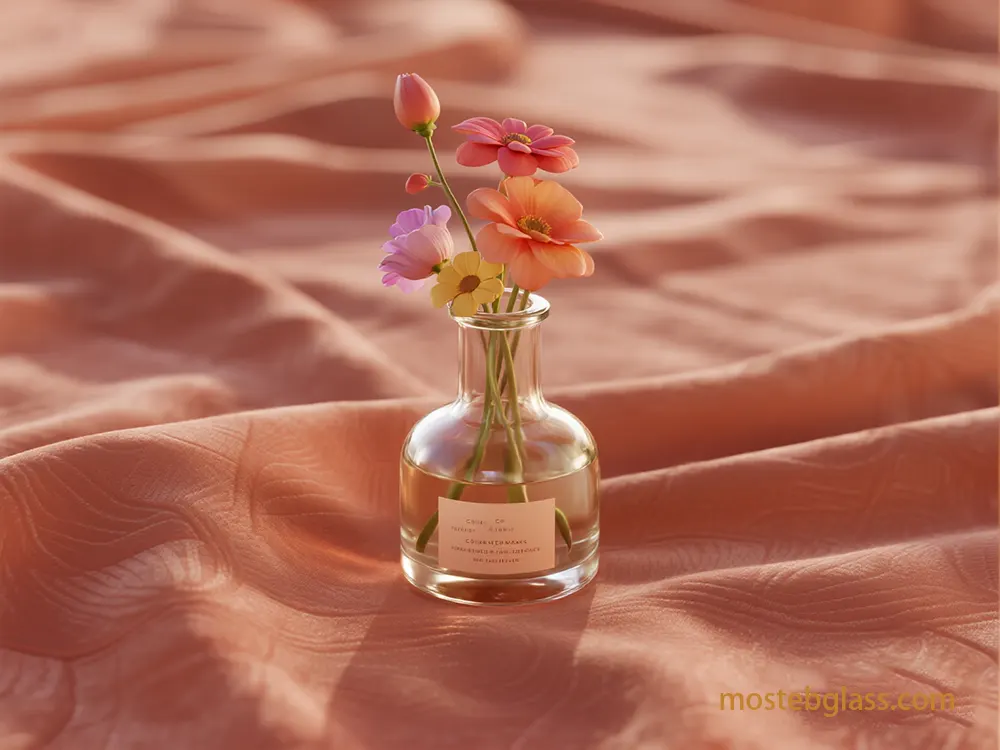
6. Case study and best practices
Examples suggest how various glass vases perform performance enhances aesthetics and strengthen the brand image in various retail environments. This case studies the power of visual merchandising in creating immersive, memorable customer experience.
6.1. Luxury Boutiques and Department Stores
- Prada’s Fall/Winter 2022 Campaign: Prada Fall/Winter 2022 campaign reflects the story through visual merchandising, using a huge glass flower display with a saddle bag. This strengthened a stunning, memorable performance communication campaign subjects and high-fashion tale.Glass allows transparency and light interaction, enhancing the alleged product luxury.
- Dyer flagship store design: Dyer’s manhattan flagship, designed to provoke a magnificent townhouse, will include excellent ornamental glass elements, complementing their gorgeous interiors, which contribute to the aura of refined elegance and heritage.
- Minimum performance for high-end products: Luxury retailers often use minimal glass case displays for high-end products, emphasize goods and build uniqueness. This is applied to glass vases, where a single, perfect hand -developed vase is presented as art, not chaos.
- Brand stability through performance style: Luxury retailers using the brand identified with careful style glass display cases, brand-specific lighting, backgrounds and accessories. Crystals, through hand blowing, or through minimal vases, this confirms stability, brand beauty and values.
6.2. Household goods stores and florists
- Sensory experience of anthropology: Anthropology stored sensory experiences designed for surprise and peace.
- IKEA and Gustaf Westman Collection: Spiral Frame in collaboration with IKEA with Gustaf Westman(Winterfint 2025, Strala) includes fickle glass vases. This suggests how mass-marketers use innovative designs to inject joy and appeal to design-conscious demographics.
- Unique display for unique display: Retailers can increase industry related items for memorable display.Floorists/Home Goods Stores can convert up the bottles of upsicated glass/jar to unique vases, which tells a story of stability and creativity, attract customers.
- Seasonal display: Including seasonal objects, like flowers in suitable glass vases, makes simple, effective seasonal display.It keeps the retail environment fresh, encourages repeating trips.
6.3. New and experienced implementation
- Smart Glass Storefronts: Retailers use switchable glass techniques to create dynamic digital materials, changing from transparent to opaque. It is a launch screen; Transparent, it provides clear product visuals including glass vases. It creates intrigue and increases the goods by unveiling/hiding the goods.
- Laminated Glass Display for flexibility: Laminated glass displays provide durability and design flexibility for easy retail space recoveryfigners. These shatter-resistant displays come to complement products in various colors/patterns and match branding, which provide a versatile platform to show glass vases.
- Glow or lined entryway: Glow or light glass elements in storesfronts create memorable visual effects, legs attract traffic and turn a storefront into a landmark. It effectively exhibits the reflective properties of glass vases.
- Adidas’s London Flagship Store: Adidas’s London flagship is a movable display and a ‘Marley’ sneaker display that explains the use of ocean plastic. The principle of integrating stability fiction may apply to recycled glass vases, stating their original and environmental benefits.
- Benetton’s ‘Rainbow Theater’ pop-up: Beton’s ‘Rainbow Theater’ pop-up focuses on a bold, sensory experience with a vibrant color palette. Multi-colored glass vases can be central, creates a dynamic, attractive visual feast.
These cases have an impact in the versatility and retail environment and brand perceptions of the case study decorative glass vases. From expressing luxury and craftsmanship to promote stability and fickle design, the use of strategic glass vase is a powerful visual merchandising tool.
7. Emerging trends and future views
The future role of decorative glass vases in retail performance and brand image is the shape of new technologies, permanent manufacturing and transfer of consumer preferences. These trends present opportunities and challenges.
7.1. New Technologies and Digital Integration
- Adidas’s London Flagship Store: Adidas’s London flagship is a movable display and a ‘Marley’ sneaker display that explains the use of ocean plastic. The principle of integrating stability fiction may apply to recycled glass vases, stating their original and environmental benefits.
- Beton’s ‘Rainbow Theater’ pop-up: Beton’s ‘Rainbow Theater’ pop-up focuses on a bold, sensory experience with a vibrant color palette. Multi-colored glass vases can be central, creates a dynamic, attractive visual feast.
These cases have an impact in the versatility and retail environment and brand perceptions of the case study decorative glass vases. From expressing luxury and craftsmanship to promote stability and fickle design, the use of strategic glass vase is a powerful visual merchandising tool.
7.2. Sustainable Manufacturing Practices
Stability is a chief consumer expectation:
- Advanced recycling and circular economy: incorporating recycled glass (collet) reduces the needs of raw materials and energy consumption. Glass vases are rapidly recycled and designed for re -purpose, aligning with a circular economy.
- Energy Efficiency: Manufacturers adopt renewable energy (solar, wind) and electric/hybrid melting technologies (eg, prime e-melt) of Fives Group to reduce CO2 emissions. The iconic home uses 100% green energy for its 3D-crushed vases.
- Light design and material efficiency: Innovation reduces the weight of glass without compromising strength, which has low physical use and low environmental effects in transportation/production.
- Bio-based and novel content: 3D-crushed vases or ocean represent bio-plastic for plastic composites such as bio-plastic durable materials.
- Ethical sourcing and social effects: Ethically partnership with social enterprises for hand -prepared glass vases empower the marginalized artisans and uses recycling materials, adding a strong moral dimension to the brand story.
7.3. Evolving Consumer Preferences
- Consumer behavior is inspired by rapid values and personal experiences:
- Demand for stability: Consumers actively seek environmentally friendly products, often pay a premium (12% globally) for goods with minimal environmental effects.
- Adaptation and Artisan Appeal: Consumers seek unique designs depicting personal style as demand for customized and artisans glass vases. The blown glass, with its underlying specificity, completes it completely.
- Experienced purchases: Consumers prefer immersive, memorable multi-sensory in-store experiences. Glass vases through aesthetics, light interaction and thematic system, contribute significantly to these experiences.
- Omnichannel expectations: Shopkeepers expect spontaneous experiences in all touchpoints-one-online, mobile, in-store.
These trends highlight a dynamic future for glass vases in retail. Brands developing technological innovation, durable practices and consumer values will take the best advantage of decorative glass vases as a powerful tool for performance growth and brand image reinforcement.
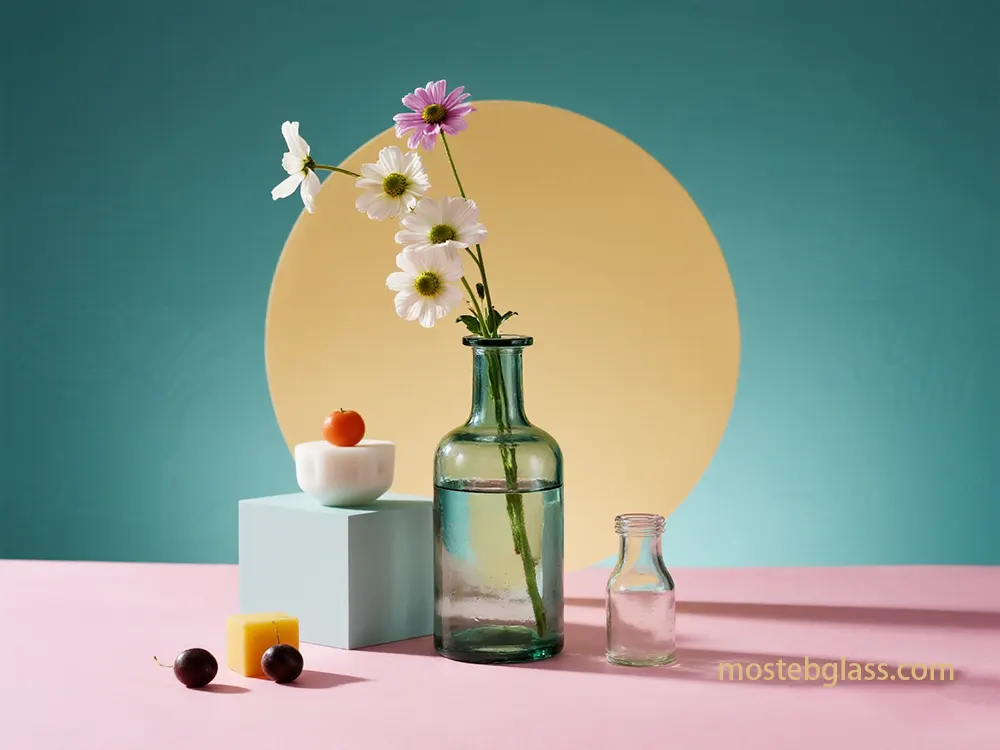
8. Conclusion & Actionable Recommendations
Strategic deployment of ornamental glass vases is a powerful, often underestimated, retail visual merchandising and equipment in brand image cultivation. From expressing luxury and craftsmanship to promoting stability and emotional relationships, these versatile elements severely shape customer experience and perception. Glass vase market, especially luxury and environmentally friendly segments, underlining their growing importance in retail strategies, is growing significantly.
8.1. Core insight
Multidimensional effects: Glass vases affect the brand image across luxury, stability, innovation and emotional resonance through material properties, design and performance references.
Experienced values: They are immersive, multi-sensory retail environment, driving engagement and significant contributors for residence time.
Average impact: The habitat is quantitative via matrix to uplifting and conversion rates to advanced eye-tracking and AI analytics.
Future-proofing through innovation: Permanent manufacturing (recycled glass, 3D printing, green energy) and emerging trends in Digital Interact (AR, Interactive Displays) provide new paths to increase their role.
8.2. Actionable Recommendations
Adaptation of decorative glass vase usage for retailers, the following recommendations are important:
- Curate for brand alignment:
- Luxury and craftsmanship: For high-end brands, invest in Mosteb Hand-Blow or Crystal Vases, which emphasize unique designs, better craftsmanship and inheritance. Use the “Museum Method” to highlight specificity and artistic value.
- Stability and ethics: integrate recycled glass vases, transparently environmentally friendly and manufacturing with moral suppliers or social enterprises to increase the moral story of the brand.
- Modern and innovative: Use with minimal, sculpture, or 3D-crushed glass vases to express innovation and contemporary design.
- Increase experienced display:
- Strategic Placement and Grouping: Use Glass Vases for focal points, apply the “rule of three” or “pyramid theory” for balance, and ensure complete, attractive, unwanted displays.
- Dynamic Lighting: Employ the strategic lighting for sculpture perception, highlight the reflective properties of the glass, and create the desired mood (eg, softened, softened for heat; Spotlights for drama).
- Sensory Integration: A composite, supplemented for memorable experience displays glass vase with fresh flowers (fresh flowers, subtle scents, music).
- Window display impact: Design unique, stylish window first displays with glass vases to force impression and campaign subjects.
- Leverage digital integration:
- Omnichannel harmony: Ensure that physical glass vase performance is corresponding to aesthetics and brand messages online channels.
- Interactive engagement: Integrate the QR code on display signage that customers integrate online product information, AR visualization (eg, “see this mostb vase in your home”), or integrate to join the social media campaign.
- Smart Glass Technology: Dynamic products reveal and explore switchable glass for storefront and in-store display to create interactive advertisements, increase the glass vase presentation.
- Apply strong measurement and adaptation:
- Comprehensive matrix: track sales performance (upliftment, ATV, conversion), customer engagement (residence time, interaction rate), and brand perception (survey, social media mention).
- Advanced Analytics: Use AI cameras, eye-tracking and retail analytics software for deep insight into customer’s behavior and deep insight for the performance of a glass vase.
- A/B testing: To identify the most effective strategies for products and brand purposes, do regular display arrangements, vase types and A/B tests on light plans.
By adopting these recommendations, retail vendors can transform decorative glass vases from simple objects to powerful strategic property, can significantly increase retail effectiveness and strengthen a strong, desirable brand image.

